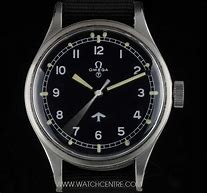Military Pilot Watches: Difference between revisions
From Chronopedia
| (3 intermediate revisions by the same user not shown) | |||
| Line 9: | Line 9: | ||
*[[Omega RAF 53 Thin Arrow|Omega RAF 1953 Thin Arrow]] | *[[Omega RAF 53 Thin Arrow|Omega RAF 1953 Thin Arrow]] | ||
*[[Omega RAF 1953 Fat Arrow]] | *[[Omega RAF 1953 Fat Arrow]] | ||
[[IWC Mk11]] | * [[IWC Mk11]] | ||
[[JLC Mk11]] | * [[JLC Mk11]] | ||
*[[Weems Watches]] | |||
==Links== | ==Links== | ||
| Line 21: | Line 22: | ||
*[[Military Watch Companies]] | *[[Military Watch Companies]] | ||
*[[1930's Pilot Watches]] | |||
Latest revision as of 03:05, 1 May 2020

Military Pilot Watches
The use of watches by military pilots to navigate has been a common theme since the introduction of manned flight early in the 20th century. Watches have developed at the same pace as planes, from simple single engine wooden flying crates to the latest supersonic jet fighters, and from manual wind timers strapped to the thigh to sophisticated electronic 'computers for the wrist'.
From simple A-B timed aerial navigation and fuel use, through Weems models, to complicated bomb timer and aiming devices, the pilots watch holds an important place in military aviation.
